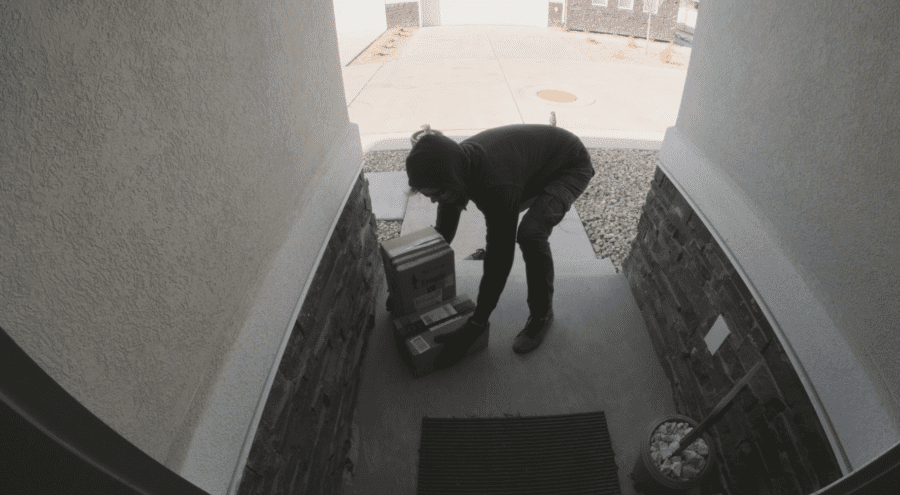
Our Blog
How to Increase University Staff Efficiency
Written by: Parcel Pending
9 Min Read
Published: April 10, 2019
Updated: June 13, 2024
As Universities grow, it is not uncommon that streamlined processes begin to lack efficiency. Administrators are tasked with addressing issues at the student, staff, and faculty level, and growth makes this process taxing. In an organisation made up of thousands of people, it’s difficult to keep track of every staff member’s individual productivity—something you’ve probably experienced before.
While some of the tips and strategies we’re going to list below can be ubiquitous across multiple types of businesses, they are commonly utilised by colleges and universities to improve their campuses and overall culture. If you’re trying to improve your university staff efficiency, then look no further. The below will, at the very least, motivate you to brainstorm certain changes and efforts that can be made. Because a happy and efficient team of staff is key to keeping students satisfied and happy!
Update Your Mailroom
Traditional mailrooms are dismally unprepared to handle the crushing number of packages that come through the doors each day. The increase in online-shopping habits among university students and staff presents a new challenge for campus mailrooms that need to be addressed immediately.
The Rise of Package Delivery
Letters are practically obsolete; students rely on emails and texts to communicate with friends and family. Most university mailrooms were built at a time when the influx of letters greatly outnumbered that of packages. This trend has shifted. Packages containing everything from food to electronics to books are piling up in mailrooms that don’t have the capacity to store them, nor the technology to efficiently sort and distribute them.
Some estimates report that one student may receive 31 packages per year on average; this rate is expected to increase by more than 13 per cent annually. In addition to the staff that ship packages to the university’s address, this increase in deliveries adds up to hundreds of thousands of deliveries to manage on a regular basis.
Streamline the Package Delivery System
Help your university staff manage the growing popularity of online shopping by installing university lockers. Parcel Pending by Quadient offers a safe, reliable solution to mailrooms overwhelmed by packages, limited by pickup hours, and overcrowded by students waiting to pick up their packages at the same time. Parcel lockers streamline package delivery and pickup, automating an inefficient, outdated system.
Parcel Pending lockers are customisable to suit your university’s needs and effectively reduce the stress on the staff tasked with receiving and distributing packages throughout the institution.
Parcel lockers increase efficiency by:
- Saving up to 240 hours of processing time per week based on an average of 31 packages per student, per year. This does not include the additional number of hours saved by staff and faculty that also receive deliveries at the school.
- Integrating advanced technology with the existing university mail tracking systems.
- Granting access to packages at any time of day or night, so retrieval is quick and convenient.
Customise to Meet Your Needs
Parcel Pending lockers are customisable, so you never have to pay for something you don’t actually need. Because of this flexibility, you can outfit your mailroom with a parcel locker system that accommodates the widest selection of packages.
For added access, Parcel Pending offers outdoor lockers so that when the administration buildings, lecture halls, and residential dorms lock up for the evening, members of the university can still pick up their packages. Outdoor lockers are especially convenient for smaller campuses with limited office space.
Benefits of Revamping the Mailroom
Overall, revamping the mailroom offers universities an efficient way to handle the rapid change in delivery trends. Parcel lockers ease the pressure on mailrooms because they:
- Handle a variety of deliverables, from interdepartmental mail to online deliveries to packages sent from friends and family.
- Allow couriers to make secure deliveries and monitor drop-offs and pick-ups.
- Let students, staff, and faculty retrieve their packages when it’s convenient for them.
Refresh Your Office
Research shows that surrounding yourself with visually appealing elements, like paintings and plants, can increase productivity by up to 15 per cent.
Beautify Your Space
Staff will feel more inclined to work if they feel comfortable in their space. Some quick ways to boost staff efficiency are:
- Refresh interior office spaces
- Place an indoor plant in every room
- Decorate the walls with paintings
- Bring in new furniture with bright colours and appealing patterns
Besides beautifying the office, allow faculty and staff to add personal touches to their offices and bring in anything else they may enjoy—like candles, flowers, or family photos.
Provide Healthy Snacks
Your staff shouldn’t be distracted by something as preventable as hunger. Keep a few types of healthy snacks in the office in case your staff gets too wrapped up in their work to grab lunch. Quick snacks keep energy levels up and help people stay productive and efficient throughout the day.
A few smart snacks to keep in the office are:
- Mixed nuts
- Protein bars
- Dried fruits
- Peanut or nut butter
- Whole grain crackers
- Popcorn
If your budget can’t cover providing snacks for your university staff, instead give them the option to bring their own and provide refrigerators for them to store them. Create a separate space both indoors and outdoors where staff can take a break and eat before getting back to the task at hand.
Discourage Reactive Behaviour
The flood of emails and phone calls can seem never-ending, especially in universities where staff must address students, faculty, and alumni alike. It may seem productive to respond to emails and phone calls right away, but all that really does is put out fires and neglect the tasks that actually need to be done. Encourage your staff to be more efficient with their day by setting aside a certain time to respond to emails and phone calls.
Determine the Urgency
If an email doesn’t need to be addressed right away, leave it alone. Train your university staff to determine what is urgent and what is not. Staff will be more focused on the issue in front of them if they have a set time to respond to emails and phone calls rather than trying to deal with them as they come in. Additionally, distractions break up workflow and reduce an employee’s productivity.
Don’t Multitask
Multitasking is never as effective as dedicating all your time and energy to a single task. Make it a habit for your staff to create a strategic plan at the beginning of each day and encourage them to do their best to stick to it. Not only will staff efficiency increase, but the quality of work produced will improve as well.
Minimise Interruptions
While it may seem more convenient to pop in on a colleague to ask a quick question, this type of behaviour greatly decreases the productivity of both team members. Most questions can be emailed and dealt with at a later time. Especially in university settings, staff and faculty are often running around campus and have set office hours for students to meet with them. Consider implementing an office hour system for inter-staff issues as well, where questions and comments can be addressed in person if they need to be.
Review Meeting Policies
In the age of modern technology, people can communicate with one another without ever meeting face-to-face. Update your meeting policies by considering a few alternatives to the traditional boardroom meeting where staff sit for an hour and waste precious time.
Refresh Traditional Meetings
Some meetings are unavoidable. If your staff absolutely has to meet in person to discuss pressing or sensitive matters, streamline your agenda and use your staff’s time wisely. Start the day with a brief, structured meeting where small teams or individuals can express their biggest goal or concern for the meeting.
This small gesture of open communication helps focus energy and gives people the chance to offer their insights throughout the course of the day. Afterwards, team members can communicate more directly through a casual conversation or email without spending hours in a group meeting.
Alternatives to In-Person Meetings
Many meetings can be replaced with an email or a multi-way phone call. Here are some other ways your staff can address their concerns without sacrificing efficiency:
- Create a video presentation. If your meeting pertains to introducing a new technology or showing something visually, a video presentation would save time and allow staff to follow along at their own pace. Any questions can be emailed to the person who created the presentation.
- Start a group chat. Instant messaging provides the same benefits of real-time communication with the added bonus of a paper trail. Team members don’t have to be physically present to contribute, and those who aren’t available to chat can catch up on what was discussed when they have time.
- Make a platform for brainstorming. Many people find it hard to come up with great ideas on the spot. Give your staff some time to think before beginning the brainstorming process and upload the ideas onto a shared document. It will relieve the pressure of calling out an idea in person and helps more introverted staff express their great ideas, too.
- Ask for direct status reports. The whole department doesn’t necessarily need to know the progress every staff member is making on their projects. Cut out the wasted time spent in an irrelevant meeting by requesting direct status reports from professors and university administrators.
Reducing Meetings Saves Time
According to Atlassian, the average office worker could save 31 hours per month by cutting out unproductive meetings. Evaluate whether your university’s meetings absolutely need to be conducted in person or if the information could be disseminated via email, over the phone, through a Web-based meeting service, or through any of the alternatives mentioned above. Those extra hours of the month will be reinvested back into the university, boosting student satisfaction and university staff efficiency.
Decentralise the Administration
Bureaucracy is inherently inefficient. Like many businesses, universities often struggle with hierarchy and staff politics, prioritising the chain of command rather than completing the task at hand in the most efficient way. Decentralising university administration may seem daunting, but top private companies have followed the same political structure and increased their productivity because of it.
Share the Decision-Making Power
Delegate tasks from the top of the administration down.
- Create smaller departments within your university
- Allow the heads of the department to make smaller decisions rather than forcing them to report back to the university president with every change made.
- Encourage communication within departments to solve problems at hand before bringing them to higher levels of administration.
Each department will receive more specialized treatment because of the smaller decision-making authority that governs it.
Individualise Department Budgets
Through decentralisation, academic departments will gain access to their budgets and tackle financial issues like purchasing office supplies, funding guest speakers, and hiring support staff as soon as they come up. Time is just as valuable as money, especially in universities where students are expected to finish their graduate degree within a certain number of years. Share the burden of budgeting with smaller departments so they can better serve the students and increase their chances of success.
The Power of Delegation
By unleashing the power of delegation, top administrators can choose whom they trust to run the smaller departments and effectively free up their own time to tackle larger projects, like university fundraising or securing research grants for the staff. On the other side, staff members can identify exactly what their department needs and solve problems more efficiently because they are close to the root of the issue. Universities need to implement long-term reform, like decentralising the administration, to improve efficiency at the foundation.
Prioritise Efficiency
All in all, efficiency in the workplace is the key to success in any university. Managing students, staff, and faculty simultaneously can seem daunting. Outfit your campus with the proper technology to handle the needs of your university and consider implementing changes to the structure of your administration. Productivity increases over time, so take steps today to improve your university staff’s efficiency for years to come.
Sources:
https://www.stlouisfed.org/publications/regional-economist/january-2006/stop-paying-more-for-less-ways-to-boost-productivity-in-higher-education
https://www.inc.com/john-rampton/15-ways-to-increase-productivity-at-work.html
https://www.chronicle.com/article/Thanks-Amazon-Campus/233700
https://adobe99u.files.wordpress.com/2013/07/2010+jep+space+experiments.pdf
https://www.parcelpending.com/en-gb/markets/higher-education-parcel-lockers/





